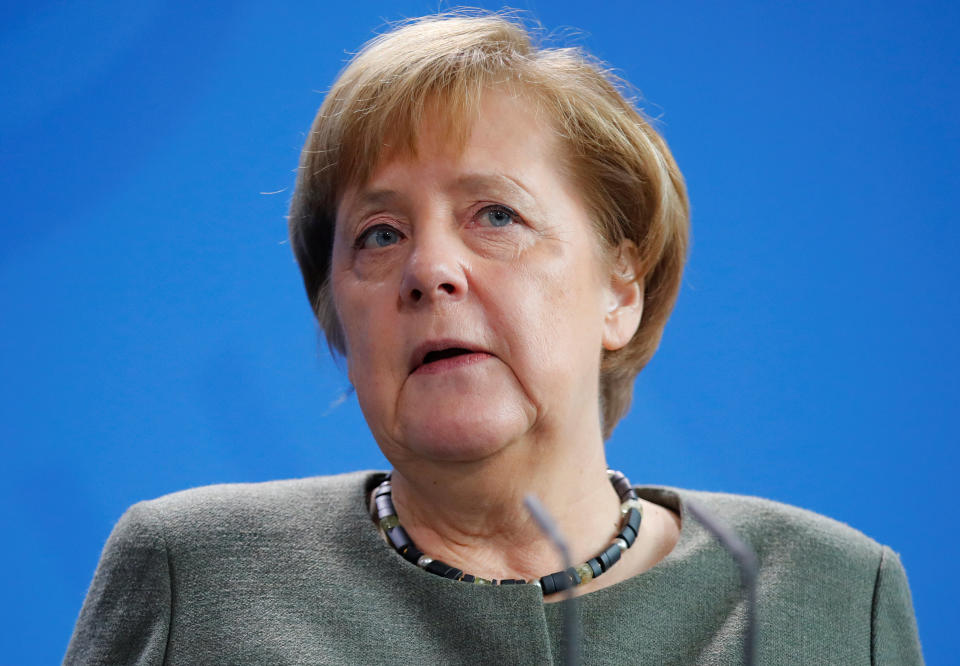Angela Merkel in Davos calls for compromise if globalism is to succeed

After Japanese prime minister Shinzo Abe’s rallying cry for hope and internationalism at the summit, the leader of the world’s fourth-largest economy – German chancellor Angela Merkel – began her address by acknowledging that “disquiet in international system as a whole … leads to lowering of predictions of growth,” adding that “on the whole, the picture is rather gloomy.”
She said international organisations were set up and decisions were taken 75 years ago, by people who were in power after the second world war, who had insights and knew what they were doing and “we shouldn’t cast their decisions aside.”
However, she called for reforming global institutions. “Compromise is a result of responsible action of politicians. A global architecture will only be successful, if we’re open to compromise.”
Merkel’s Davos address on Wednesday echoed her New Year’s speech to Germany, where she warned that the world order was in danger of crumbling in the face of rising nationalism, and underlining the importance of upholding multilateral institutions.
“We will only master the challenges of our time if we hold together and work with others across boundaries and borders.”
At Davos last year, Merkel warned the spirit of multilateralism, which had rebuilt Europe after second world war, was under threat, with “populism on the rise … a polarising atmosphere, and a polarising state of affairs.”
Unlike US president Donald Trump, British prime minister Theresa May, and French president Emmanuel Macron who all skipped Davos to deal with major problems in their respective countries, Merkel is polling well at home, and has no really urgent crises to deal with.
Merkel’s speeches reflect the chancellor as a global stateswoman taking on the task of promoting open-borders, international cooperation, and liberal values. While she’s been described as the de facto leader of Europe, she remains under pressure at home as she enters the final two years of her term as chancellor. Regional elections, a loveless coalition with the Social Democrats, and the European parliament elections in May are concerns for Merkel this year.
She stepped down as leader of the Christian Democratic Union (CDU) in December 2018, after 18 years at the helm, following a string of disappointing state-election results her party — and major gains by the anti-immigrant Alternative for Germany (AFD). It is not certain that she will be able to remain as chancellor until the end of her term in 2021, despite her ally Annegret Kramp-Karrenbauer taking over as the new party chairwoman.
A recent Insa poll showed that the right-wing AFD, which lured away voters in the last federal election, who were angry at Merkel’s open-door refugee policies, have suffered a drop in support in Germany. Voter support for the AFD among the 2,044 poll respondents has dropped to 13%. It was at 15% in October. Merkel’s conservatives meanwhile are on 31%.

 Yahoo Finance
Yahoo Finance 